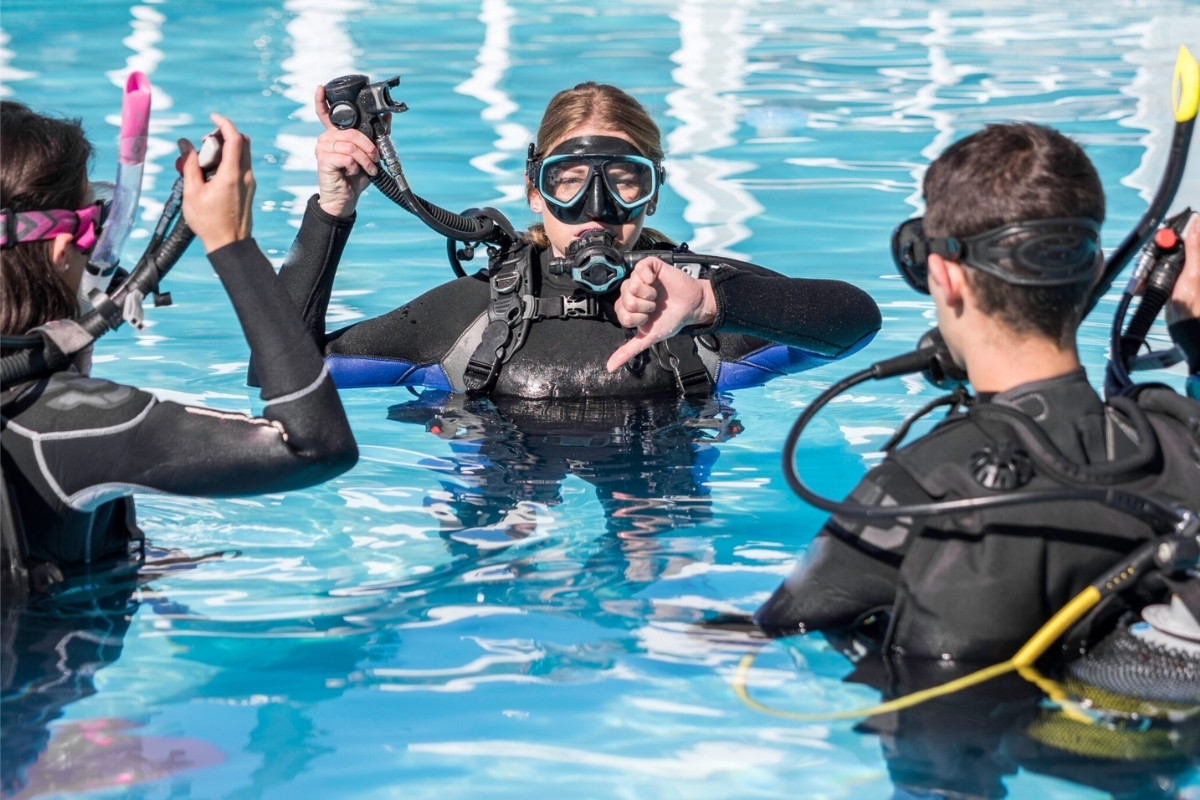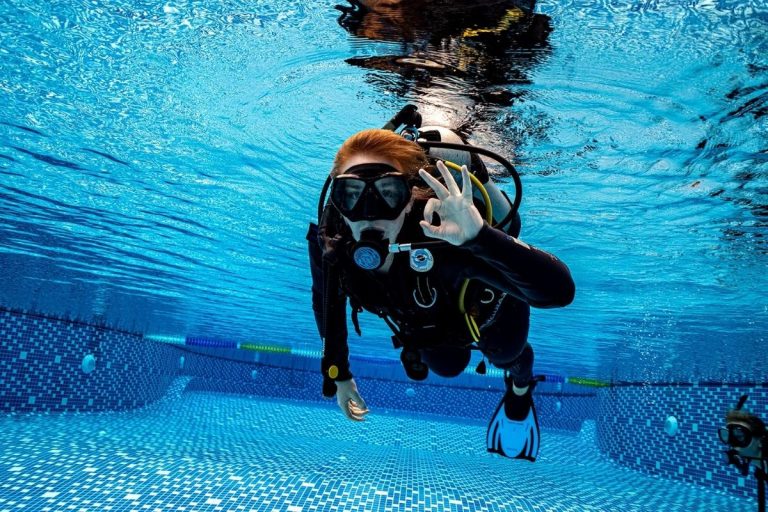Getting into medical school requires careful planning and preparation, starting with understanding the essential course prerequisites and academic requirements. Each medical school has specific standards that prospective students must meet, and these requirements can vary significantly between institutions. Whether you’re just beginning your undergraduate journey or preparing to apply, knowing what courses to take and when to take them will set you up for success in the competitive world of medical school admissions.
- Understanding Course Prerequisites
- Key Medical School Requirements
- Specific Prerequisites for North Carolina Medical Schools
- Recommended Additional Courses
- Application Process and Competitiveness
- Strategies for Success in Pre-Med Studies
- Understanding the Role of Academic Advisors
- Keeping Informed About Changes in Requirements
- Frequently Asked Questions
- Pathway to Medical School Success
Understanding Course Prerequisites
150-200 words
Course prerequisites serve as the foundation for medical education, ensuring that incoming students possess the necessary scientific knowledge to succeed in rigorous medical curricula. These requirements aren’t arbitrary; they reflect the core competencies needed to understand complex medical concepts and clinical applications. Understanding medical school prerequisites early in your academic career allows you to plan your coursework strategically and avoid last-minute scrambling to fulfill requirements.
Most medical schools require completion of specific science courses because they directly relate to medical practice. For instance, organic chemistry helps students understand drug interactions and metabolic pathways, while physics provides the basis for understanding medical imaging and equipment operation. Biology courses build the fundamental knowledge of human systems and cellular processes that form the backbone of medical education.
The timing of when you complete these prerequisites matters too. Many schools prefer that students complete prerequisite courses within a certain timeframe before application, typically within seven years. This ensures that your scientific knowledge remains current and relevant to modern medical practice.
Importance of Course Prerequisites
80-100 words
Prerequisites act as gatekeepers, ensuring that medical students enter their programs with adequate preparation for the challenging curriculum ahead. These courses develop critical thinking skills, scientific reasoning abilities, and foundational knowledge that medical schools build upon during the first two years of study. Without proper preparation in chemistry, biology, and physics, students would struggle to understand pharmacology, anatomy, physiology, and pathology concepts taught in medical school.
Common Prerequisite Courses
80-100 words
The standard prerequisite courses include one year each of general biology with lab, general chemistry with lab, organic chemistry with lab, and physics with lab. Most schools also require one year of English or writing-intensive courses to ensure strong communication skills. Biochemistry has become increasingly important, with many schools now requiring at least one semester. Mathematics requirements typically include statistics and sometimes calculus, depending on the specific institution’s preferences.
Variability Among Institutions
80-100 words
While core science requirements remain fairly consistent across medical schools, specific details can vary considerably. Some schools accept Advanced Placement credits for prerequisites, while others require all coursework to be completed at the college level. Certain institutions may have additional requirements like genetics, anatomy and physiology, or specific upper-level biology courses. International students or those with degrees from non-accredited institutions often face additional coursework requirements to demonstrate academic competency.
Consulting Academic Advisors
80-100 words
Academic advisors play a crucial role in helping pre-medical students navigate prerequisite requirements effectively. They stay updated on changing admission standards and can provide personalized guidance based on your academic background and target schools. Regular meetings with advisors help ensure you’re on track to complete all requirements while maintaining competitive grades. They can also suggest appropriate course sequences and help you balance prerequisite coursework with other degree requirements and extracurricular activities.
Key Medical School Requirements
150-200 words
Beyond course prerequisites, medical schools evaluate candidates based on several key academic requirements that demonstrate readiness for medical education. These standards have evolved to reflect the changing landscape of medical practice and education, with schools placing increased emphasis on well-rounded preparation rather than just scientific knowledge.
The Medical College Admission Test (MCAT) remains a central component of most applications, testing knowledge in biological sciences, physical sciences, psychological and social foundations of behavior, and critical analysis. Schools use MCAT scores alongside GPA to assess academic preparedness and compare candidates across different undergraduate institutions and programs.
Academic requirements also encompass the quality and rigor of undergraduate education. Medical schools prefer candidates who have challenged themselves with demanding coursework and demonstrated consistent academic excellence. The trend toward holistic admissions means schools also consider factors like research experience, clinical exposure, community service, and leadership activities alongside traditional academic metrics.
Understanding these broader academic requirements helps you develop a comprehensive application strategy that goes beyond simply completing prerequisite courses. Success requires balancing academic excellence with meaningful experiences that demonstrate your commitment to medicine and service to others.
MCAT Score Requirements
80-100 words
MCAT scores provide standardized assessment across all applicants, with most competitive medical schools expecting scores in the 510-520 range. The average matriculant MCAT score varies by institution, with top-tier schools often requiring scores above 515. Recent test scores are preferred, typically taken within three years of application. Schools accept scores from specific testing windows, so timing your MCAT attempt strategically is crucial for meeting application deadlines while allowing time for retakes if necessary.
Bachelor’s Degree Specifications
80-100 words
Medical schools require completion of a bachelor’s degree from an accredited institution before matriculation. While any major is acceptable, the degree must demonstrate academic rigor and breadth of knowledge. Students with degrees from non-accredited institutions or international universities may need additional coursework to meet academic requirements. Some schools specify minimum credit hour requirements or prefer degrees that include substantial science coursework beyond basic prerequisites.
BCPM Coursework Requirements
80-100 words
Biology, Chemistry, Physics, and Mathematics (BCPM) coursework forms the core of pre-medical preparation. Schools typically require specific minimum credit hours in these areas, often totaling 30 or more semester hours. The BCPM GPA is calculated separately and carries significant weight in admissions decisions. Competitive applicants usually maintain BCPM GPAs above 3.5, with many successful candidates achieving 3.7 or higher. Upper-level courses in these subjects demonstrate advanced scientific understanding.
Upper-Level Biology Courses
80-100 words
Many medical schools now require completion of upper-level biology courses beyond introductory sequences. These advanced courses, such as cell biology, molecular biology, genetics, or physiology, provide deeper scientific understanding essential for medical school success. Schools prefer these courses be completed in traditional classroom settings rather than online formats. The specific number and types of upper-level biology courses vary by institution, making it important to research requirements at your target schools early in your undergraduate career.
Specific Prerequisites for North Carolina Medical Schools
150-200 words
North Carolina medical schools each have unique prerequisite requirements that reflect their individual missions and educational philosophies. Understanding these specific requirements is essential for students planning to apply to programs within the state, as variations can significantly impact your course planning and preparation timeline.
The state’s medical schools range from large public institutions to smaller private colleges, each with distinct admission standards and prerequisite specifications. Some schools have recently updated their requirements to reflect changes in medical education and practice, making it crucial to stay informed about current standards rather than relying on outdated information.
These institutions also vary in their flexibility regarding prerequisite completion timing, acceptance of online coursework, and requirements for specific course sequences. Some schools are more accommodating to non-traditional students or career changers, while others maintain stricter traditional pathways. Understanding these nuances helps you tailor your application strategy and coursework planning to align with your target schools’ expectations.
Additionally, many North Carolina medical schools have established relationships with in-state undergraduate institutions, sometimes offering preferred pathways or early assurance programs that can influence your prerequisite planning and application timeline.
East Carolina University Requirements
80-100 words
East Carolina University’s Brody School of Medicine emphasizes serving rural and underserved communities in North Carolina. Their prerequisite requirements include standard science courses plus specific recommendations for psychology and sociology coursework. The school values applicants with demonstrated commitment to primary care and rural medicine. They prefer completion of prerequisites at four-year institutions and may have specific requirements for laboratory components. ECU also considers factors like North Carolina residency and commitment to practicing in underserved areas when evaluating applications.
Campbell University Requirements
80-100 words
Campbell University School of Osteopathic Medicine requires completion of standard prerequisite courses with emphasis on recent completion dates. As an osteopathic program, they value applicants who understand osteopathic principles and demonstrate commitment to whole-person healthcare. The school requires specific coursework in biochemistry and prefers upper-level biology courses. Campbell also emphasizes the importance of clinical experience and community service in their admissions process, making these experiences essential components of competitive applications.
Duke University Requirements
80-100 words
Duke University School of Medicine maintains highly competitive admission standards with rigorous prerequisite requirements. They require completion of all standard science prerequisites plus biochemistry and prefer advanced coursework in biology and chemistry. Duke values research experience and academic excellence, with successful applicants typically having high MCAT scores and GPAs. The school emphasizes innovation in medical education and seeks candidates who demonstrate leadership potential and commitment to advancing medical knowledge through research and clinical practice.
UNC Requirements
80-100 words
The University of North Carolina School of Medicine requires standard prerequisites plus biochemistry and two upper-level biology courses. They prefer in-person completion of laboratory courses and have specific MCAT score requirements, with recent scores accepted from January 2023 through September 2025. UNC emphasizes qualities like curiosity, caring nature, and service orientation. The school requires three letters of recommendation and has specific application deadlines, with recommended submission by August 31 for optimal consideration.
Wake Forest Requirements
80-100 words
Wake Forest School of Medicine requires completion of standard prerequisite courses with emphasis on strong performance in science coursework. They value applicants who demonstrate commitment to service and leadership in their communities. The school prefers recent completion of prerequisites and may have specific requirements for mathematics coursework. Wake Forest emphasizes the importance of clinical experience and looks for candidates who understand the challenges and rewards of medical practice through meaningful healthcare exposure and volunteer experiences.
Recommended Additional Courses
150-200 words
While completing minimum prerequisites is essential, taking additional recommended courses can significantly strengthen your medical school application and better prepare you for the rigors of medical education. These supplementary courses demonstrate academic curiosity, provide deeper scientific understanding, and can help you stand out in a competitive applicant pool.
Many recommended courses directly relate to topics you’ll encounter in medical school, giving you a head start on complex subjects. For example, anatomy and physiology courses provide foundational knowledge that makes first-year medical school coursework more manageable. Similarly, genetics courses have become increasingly important as personalized medicine and genetic testing play larger roles in clinical practice.
The recommended courses also help develop skills that are crucial for medical practice but not always emphasized in required prerequisites. Psychology and sociology courses build understanding of human behavior and social determinants of health, which are essential for effective patient care and communication. These courses align with the growing emphasis on behavioral health and social medicine in medical education.
Taking recommended courses strategically can also help boost your science GPA if you’ve struggled with required prerequisites, providing additional opportunities to demonstrate academic improvement and scientific competency to admissions committees.
Psychology and Sociology
80-100 words
Psychology and sociology courses provide essential understanding of human behavior, mental health, and social factors that influence health outcomes. These subjects are increasingly emphasized in medical education as schools recognize the importance of behavioral health and social determinants in patient care. Psychology courses help develop skills in understanding patient motivation, compliance, and mental health issues. Sociology courses provide insight into healthcare disparities, cultural competency, and population health concepts that are fundamental to modern medical practice.
Genetics and Calculus
80-100 words
Genetics has become increasingly important in medical practice with advances in personalized medicine, genetic testing, and gene therapy. A solid understanding of genetic principles helps medical students grasp complex topics in pathology, pharmacology, and clinical decision-making. Calculus, while not always required, demonstrates mathematical sophistication and provides foundation for understanding pharmacokinetics, epidemiology, and research methodology. These courses show admissions committees that you can handle advanced scientific concepts and mathematical reasoning required in medical school and practice.
Anatomy & Physiology
80-100 words
Anatomy and physiology courses provide direct preparation for medical school coursework, giving students foundational knowledge of human body systems and functions. These courses help ease the transition into medical school by familiarizing students with medical terminology, anatomical structures, and physiological processes. Students who complete anatomy and physiology often perform better in first-year medical school courses and feel more confident during initial clinical experiences. Many schools specifically recommend these courses for students who haven’t had extensive biology coursework.
Biochemistry
80-100 words
Biochemistry bridges chemistry and biology, providing essential understanding of molecular processes underlying health and disease. This course has become so important that many medical schools now require rather than just recommend it. Biochemistry knowledge is fundamental for understanding pharmacology, metabolism, genetics, and pathophysiology taught in medical school. The course also develops problem-solving skills and scientific reasoning abilities that are crucial for success in medical education. Students with strong biochemistry backgrounds often find medical school coursework more manageable and interconnected.
Application Process and Competitiveness
150-200 words
The medical school application process is highly competitive and requires careful planning, strategic timing, and comprehensive preparation. Understanding the various components of application procedures and factors that influence competitiveness helps prospective students develop effective strategies for presenting themselves as strong candidates.
Application competitiveness extends far beyond grades and test scores, though these remain important baseline requirements. Medical schools use holistic review processes that consider personal experiences, character qualities, commitment to service, and potential for contributing to the medical profession. This comprehensive evaluation means that students with slightly lower statistics can still be competitive if they demonstrate exceptional qualities in other areas.
The application timeline is crucial, with most schools using rolling admissions that favor early applicants. Understanding deadlines, required components, and optimal submission timing can significantly impact your chances of acceptance. Many successful applicants begin preparing their applications months in advance, allowing time to craft compelling personal statements, secure strong letters of recommendation, and complete secondary applications promptly.
Geographic factors, institutional preferences, and mission alignment also influence competitiveness. Some schools prefer in-state residents, while others actively recruit diverse candidates from various backgrounds. Understanding these preferences helps you target schools where you’re most likely to be competitive.
Application Deadlines
80-100 words
Medical school application deadlines vary by institution but typically fall between October and December for the following year’s entering class. Primary applications through AMCAS are usually due in early fall, while secondary applications have later deadlines. Early submission is crucial because many schools use rolling admissions, reviewing applications as they’re received. Recommended submission dates are often earlier than final deadlines, with schools like UNC suggesting August 31 submission for optimal consideration. Missing deadlines or submitting late applications significantly reduces acceptance chances.
Required Letters of Recommendation
80-100 words
Most medical schools require three letters of recommendation submitted through AMCAS, though specific requirements vary by institution. Letters typically include recommendations from science faculty who can assess your academic abilities, healthcare professionals who can speak to your clinical exposure, and mentors who know your character and commitment to medicine. Quality matters more than quantity, with strong letters from individuals who know you well being more valuable than generic letters from prestigious but distant contacts. Plan to request letters well in advance of deadlines.
Factors Affecting Competitiveness
80-100 words
Competitiveness depends on multiple factors including MCAT scores, GPA, clinical experience, research involvement, community service, and personal qualities. Schools seek candidates who demonstrate academic excellence, commitment to service, leadership potential, and understanding of medical practice challenges. Non-cognitive factors like communication skills, empathy, and cultural competency are increasingly important. Geographic diversity, socioeconomic background, and unique life experiences can also influence competitiveness. Understanding your strengths and addressing weaknesses through meaningful experiences helps build a competitive application profile.
Veteran Recruitment Policies
80-100 words
Many medical schools have specific policies and programs designed to recruit and support military veterans. These programs recognize the unique experiences, leadership skills, and service commitment that veterans bring to medical education. Some schools offer special application tracks, mentorship programs, or financial support for veteran applicants. Veterans may receive preference in admissions decisions or have access to specialized support services during medical school. Military experience can be a significant asset in medical school applications, particularly when combined with strong academic performance and clear motivation for medical careers.
Strategies for Success in Pre-Med Studies
150-200 words
Success in pre-medical studies requires more than just completing required coursework; it demands strategic planning, effective study techniques, and smart utilization of available resources. Developing strong study habits early in your undergraduate career sets the foundation for success throughout your pre-medical preparation and eventual medical school performance.
The key to pre-medical success lies in understanding that medical school admissions committees look for evidence of your ability to handle rigorous academic demands while maintaining balance in other life areas. This means excelling academically while also gaining meaningful clinical experience, conducting research, serving your community, and developing leadership skills.
Time management becomes crucial as you balance prerequisite coursework with other degree requirements, extracurricular activities, and preparation for the MCAT. Many successful pre-medical students develop sophisticated scheduling systems and learn to prioritize activities that align with their medical school goals while maintaining personal well-being.
Building relationships with faculty, advisors, and mentors throughout your undergraduate career provides valuable guidance and support. These relationships often lead to research opportunities, strong letters of recommendation, and insights into the medical profession that strengthen your application and preparation for medical school.
Time Management Tips
80-100 words
Effective time management is essential for balancing prerequisite coursework, extracurricular activities, and personal responsibilities. Create detailed schedules that allocate specific time blocks for studying, clinical experiences, research, and personal activities. Use tools like calendars, planners, and apps to track deadlines and commitments. Prioritize high-impact activities that align with your medical school goals while maintaining academic excellence. Build in buffer time for unexpected challenges and avoid overcommitting to activities that don’t contribute meaningfully to your preparation. Regular schedule reviews help you adjust priorities as circumstances change.
Study Techniques
80-100 words
Develop active learning strategies that promote deep understanding rather than memorization. Use techniques like concept mapping, practice problems, and teaching others to reinforce learning. Form study groups with serious pre-medical students to share knowledge and maintain motivation. Create connections between different science courses to build integrated understanding. Practice retrieval through regular self-testing and spaced repetition. Adapt your study methods to different subjects, using visual aids for anatomy, problem-solving for chemistry, and conceptual frameworks for biology. Seek help early when struggling rather than waiting until problems become overwhelming.
Utilizing Campus Resources
80-100 words
Take advantage of campus resources designed to support pre-medical students, including tutoring centers, study groups, and academic support services. Participate in pre-medical organizations and honor societies that provide networking opportunities and professional development. Use career services for resume building, interview preparation, and application guidance. Access research opportunities through faculty connections and undergraduate research programs. Utilize library resources, study spaces, and technology support to enhance your academic performance. Connect with upperclass pre-medical students who can provide advice and mentorship based on their experiences navigating the pre-medical path successfully.
Understanding the Role of Academic Advisors
150-200 words
Academic advisors serve as crucial guides throughout your pre-medical journey, providing expertise that can make the difference between successful preparation and missed opportunities. These professionals stay current with changing medical school requirements, application procedures, and trends in medical education that individual students might overlook or misunderstand.
The relationship with your academic advisor should be collaborative and ongoing rather than limited to occasional check-ins before registration. Effective advisors help you develop comprehensive academic plans that balance prerequisite completion with degree requirements, extracurricular activities, and personal goals. They can identify potential problems early and suggest solutions before they impact your timeline or competitiveness.
Many students underestimate the value of regular advisor meetings, missing opportunities to optimize their preparation strategy. Advisors often have insights into specific medical schools, application procedures, and career paths that aren’t readily available through other sources. They can also connect you with alumni, research opportunities, and clinical experiences that strengthen your application.
The best advisor relationships involve honest communication about your goals, challenges, and concerns. Advisors can provide realistic assessments of your competitiveness and suggest strategies for improvement, but only if they have accurate information about your situation and aspirations.
Importance of Academic Guidance
80-100 words
Academic guidance provides essential navigation through the complex landscape of pre-medical preparation and medical school admissions. Advisors help ensure you complete all requirements on schedule while maintaining competitive grades and gaining relevant experiences. They stay updated on changing admission standards and can alert you to new requirements or opportunities. Guidance helps you avoid common pitfalls that derail pre-medical students, such as poor course sequencing, inadequate clinical experience, or unrealistic school selections. Professional guidance also provides objective assessment of your progress and competitiveness throughout your preparation.
How to Approach Your Advisor
80-100 words
Schedule regular meetings with your advisor rather than waiting for problems to arise. Come prepared with specific questions, concerns, and updates about your progress and goals. Be honest about your academic performance, challenges, and changing interests. Bring your academic transcript, tentative course schedules, and lists of target medical schools to facilitate productive discussions. Follow up on advisor recommendations and report back on outcomes. Respect your advisor’s time by being punctual, prepared, and focused during meetings. Maintain contact even when things are going well to build a strong ongoing relationship.
Questions to Ask Your Advisor
80-100 words
Ask specific questions about course sequencing, prerequisite timing, and degree planning to optimize your preparation timeline. Inquire about research opportunities, clinical experiences, and extracurricular activities that strengthen applications. Discuss your target medical schools and ask for honest assessment of your competitiveness. Get advice on MCAT timing, application strategy, and backup plans. Ask about resources for struggling students, study abroad opportunities, and gap year activities. Request information about alumni experiences and career outcomes. Seek guidance on balancing academic excellence with meaningful experiences and personal well-being throughout your pre-medical preparation.
Keeping Informed About Changes in Requirements
150-200 words
Medical school requirements and application procedures change regularly, making it essential to stay informed about updates that could affect your preparation strategy. Schools modify their prerequisites, adjust MCAT score requirements, change application deadlines, and update their evaluation criteria based on evolving medical education standards and healthcare needs.
These changes can significantly impact your course planning, application timeline, and competitiveness if you’re not aware of them early enough to adjust your strategy. For example, when schools add new prerequisite requirements or change their preferred coursework, students who learn about these changes late may need to extend their preparation timeline or take additional courses.
The sources of requirement changes are diverse, including accreditation body recommendations, curriculum updates, research findings about student success factors, and responses to healthcare industry changes. Schools typically announce major changes well in advance, but smaller modifications might receive less publicity while still affecting applicant evaluation.
Staying informed requires active monitoring of multiple information sources and regular communication with advisors and pre-medical communities. The investment in staying current pays dividends by ensuring your preparation remains aligned with current standards and expectations rather than outdated requirements that no longer apply.
Monitoring Updates from Medical Schools
80-100 words
Regularly check websites of your target medical schools for requirement updates, application procedure changes, and new program announcements. Subscribe to admissions office newsletters and follow schools on social media for timely updates. Attend virtual information sessions and webinars where schools announce changes and answer questions. Set calendar reminders to review school websites periodically, particularly before each application cycle. Contact admissions offices directly when you have questions about requirements or need clarification about changes. Keep detailed records of requirement changes to ensure your preparation stays current and complete.
Staying Engaged with Pre-Med Communities
80-100 words
Participate in pre-medical student organizations, online forums, and professional associations that share information about requirement changes and application updates. Connect with current medical students and recent graduates who can provide insights into evolving admission standards. Join social media groups and professional networks focused on pre-medical preparation and medical education. Attend pre-medical conferences, workshops, and networking events where requirement changes are often discussed. Share information with fellow pre-medical students and learn from their experiences navigating requirement changes and application processes.
Utilizing Online Resources
80-100 words
Use reputable online resources like AAMC publications, medical school websites, and professional pre-medical guidance sites for current requirement information. Follow medical education news sources that report on changes in admission standards and medical school policies. Utilize online databases that track requirement changes across multiple schools. Set up Google alerts for terms related to medical school admissions and requirement changes. Verify information from multiple sources before making significant changes to your preparation strategy. Be cautious of outdated information and always confirm current requirements directly with schools when planning your coursework and application strategy.
Frequently Asked Questions
What are common medical school prerequisites?
Common prerequisites include one year each of general biology, general chemistry, organic chemistry, and physics, along with lab components. Some schools also require biochemistry and mathematics courses.
How important is the MCAT for medical school applications?
The MCAT is a central component of applications, with competitive scores typically in the range of 510-520. Schools use MCAT scores along with GPA to assess academic preparedness.
What additional courses are recommended for pre-med students?
Recommended courses include psychology, sociology, anatomy, physiology, and genetics, which help strengthen applications and prepare students for medical school coursework.
How can academic advisors assist pre-med students?
Academic advisors provide guidance on course selection, help navigate admission requirements, and offer insights into specific medical schools, enhancing students' preparation strategies.
What should I do to stay informed about changes in medical school requirements?
Regularly check medical school websites, subscribe to admissions newsletters, and engage with pre-med communities to stay updated on any changes to requirements or application procedures.
Pathway to Medical School Success
Navigating the journey to medical school requires strategic planning, a solid understanding of prerequisites, and a commitment to continuous learning. By staying informed about requirements and seeking guidance from academic advisors, prospective students can enhance their competitiveness and readiness for medical education. Engaging in meaningful experiences and maintaining a balanced approach will further support their aspirations to become successful medical professionals.






